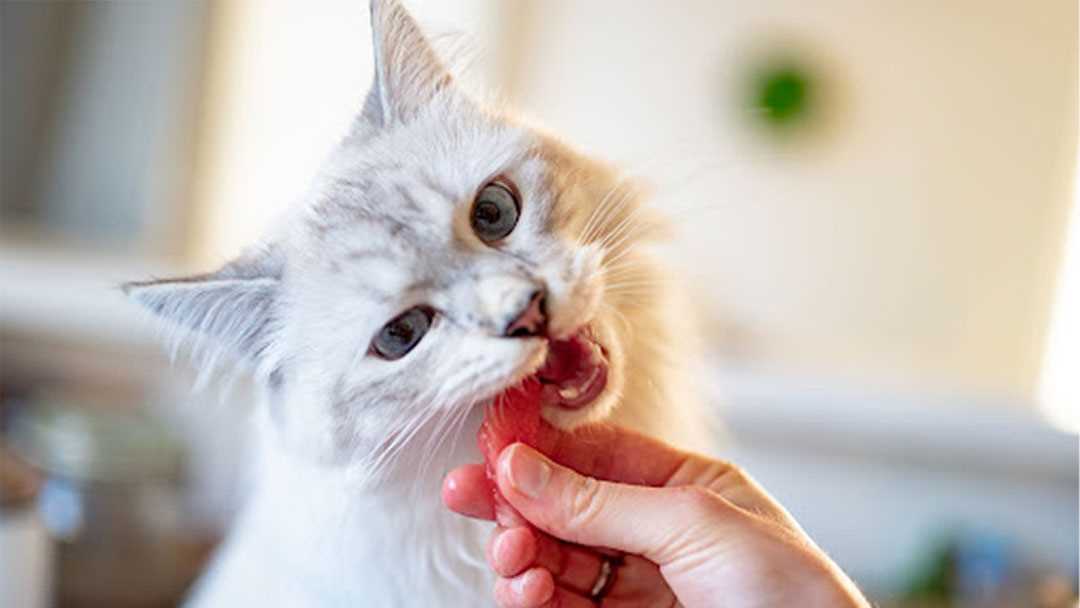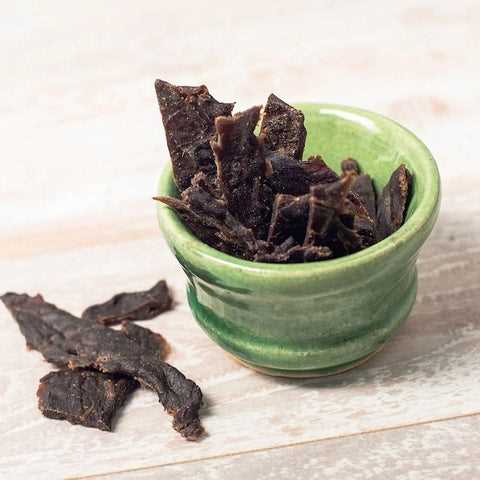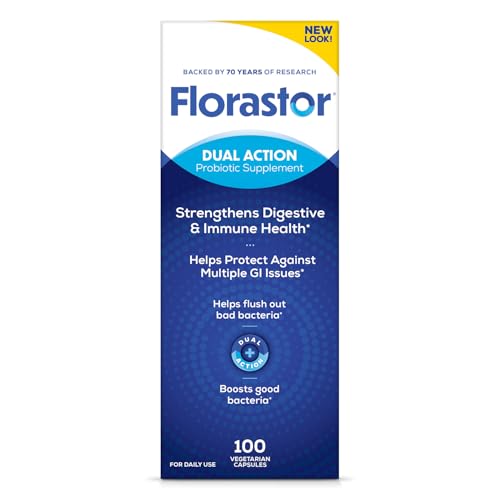As a wise Scottish Fold, I must warn you: feeding your furry friend dried meat snacks is a risky choice. These treats often contain high levels of sodium and other preservatives that can lead to serious health issues in our kind.
While it may be tempting to share your savory snack, the ingredients can be harmful. Ingredients like garlic and onion powder, commonly found in many dried meats, are toxic to us cats, potentially causing gastrointestinal distress or worse. Always check the labels before offering anything new.
Stick to cat-friendly treats that are formulated specifically for us. Your kitty’s health is paramount, and there’s no need to take chances with human snacks that could lead to dire consequences.
Can Beef Jerky Harm Felines?
It’s not advisable to feed this type of dried meat to felines. The high sodium content, preservatives, and spices can lead to serious health issues. Symptoms of salt poisoning include excessive thirst, urination, and even seizures. My friends have shared tales of their humans offering them a taste, but the risks far outweigh any enjoyment. Always prioritize a balanced diet suitable for our dietary needs.
For those curious about other snack options, I found that some veggies can be safe in moderation. For example, can cats eat brussel sprouts? It’s worth exploring what foods are safe and nutritious for us.
Understanding the Ingredients in Dried Meat Treats
Always check the label before sharing any dried meat snacks with your feline friend. Common ingredients in these products include salt, sugar, preservatives, and various spices, which may not be suitable for pets. Excessive sodium can lead to health complications in animals, including dehydration and kidney issues.
Look out for artificial additives like flavor enhancers and colorings. These chemicals can cause allergic reactions or digestive distress in sensitive cats. It’s best to avoid anything that isn’t natural.
Some varieties contain onion or garlic powder, which are toxic to felines. Even small amounts can result in serious health risks, such as hemolytic anemia. Always read ingredient lists thoroughly to ensure your kitty’s safety.
Opt for products specifically designed for pets, as they are formulated without harmful substances. If you’re considering a protein-rich snack, homemade options using plain, cooked meat without seasoning can be a safer alternative.
Consult your veterinarian if you’re unsure about a specific product or ingredient. Keeping your furry companion safe and healthy should always come first!
The Risks of Feeding Dried Meat to Cats

Feeding dried meat products to felines poses various health risks. It’s crucial to recognize these potential hazards before offering such snacks.
- Sodium Levels: Many dried meat snacks contain high sodium, which can lead to dehydration and kidney issues in cats. Excessive salt intake may also cause increased thirst and urination.
- Seasonings and Preservatives: Flavors and preservatives used in these treats can be toxic. Ingredients like garlic and onion are harmful to felines, potentially leading to serious health problems.
- Digestive Issues: The tough texture of dried meat can cause gastrointestinal distress. Cats might experience vomiting or diarrhea after consuming these products, especially if they are not accustomed to them.
- Caloric Density: These snacks are often calorie-dense, leading to weight gain if fed in excess. Maintaining a healthy weight is essential for feline well-being.
- Choking Hazard: The dry and chewy texture can present a choking risk, particularly for smaller or older cats with dental issues.
It’s best to stick with treats specifically formulated for cats to ensure their health and safety. Always consult a veterinarian before introducing new items into a cat’s diet.
Signs of Beef Jerky Toxicity in Cats
Pay attention to your feline friend after they consume dried meat snacks. Symptoms of toxicity can manifest quickly. Look for signs like excessive thirst, vomiting, or diarrhea. If your companion starts showing lethargy or difficulty breathing, it’s crucial to seek veterinary assistance immediately.
Common Symptoms to Watch For
Behavior changes are notable indicators. If your playful buddy becomes unusually inactive or hides away, this may signal distress. Additionally, watch for signs of abdominal pain, such as pacing or vocalizing. Excessive drooling can also occur, indicating nausea.
What to Do If You Suspect Toxicity

If you notice any of these symptoms after your pet has ingested these snacks, contact your veterinarian without delay. Providing them with details about the ingredients can assist in determining the best course of action. For more insights into feline preferences, check out do some cats not like catnip.
FAQ:
Can beef jerky be harmful to cats?
Yes, beef jerky can be harmful to cats. While it may not be lethal in small amounts, it often contains high levels of sodium and preservatives that are not suitable for feline digestion. Cats have specific dietary needs, and consuming products like beef jerky can lead to health issues such as dehydration, kidney problems, and gastrointestinal distress. It’s best to stick to cat-specific treats to ensure their health and well-being.
What should I do if my cat eats beef jerky?
If your cat has eaten beef jerky, monitor them for any signs of distress or illness. Symptoms may include vomiting, diarrhea, excessive thirst, or lethargy. If you notice any of these signs, or if your cat consumed a large amount, contact your veterinarian for advice. They may recommend bringing your cat in for an evaluation or suggest ways to manage their condition at home. It’s important to keep such human foods out of reach to prevent future incidents.
As a wise Scottish Fold, I must warn you: feeding your furry friend dried meat snacks is a risky choice. These treats often contain high levels of sodium and other preservatives that can lead to serious health issues in our kind.
While it may be tempting to share your savory snack, the ingredients can be harmful. Ingredients like garlic and onion powder, commonly found in many dried meats, are toxic to us cats, potentially causing gastrointestinal distress or worse. Always check the labels before offering anything new.
Stick to cat-friendly treats that are formulated specifically for us. Your kitty’s health is paramount, and there’s no need to take chances with human snacks that could lead to dire consequences.
Can Beef Jerky Harm Felines?
It’s not advisable to feed this type of dried meat to felines. The high sodium content, preservatives, and spices can lead to serious health issues. Symptoms of salt poisoning include excessive thirst, urination, and even seizures. My friends have shared tales of their humans offering them a taste, but the risks far outweigh any enjoyment. Always prioritize a balanced diet suitable for our dietary needs.
For those curious about other snack options, I found that some veggies can be safe in moderation. For example, can cats eat brussel sprouts? It’s worth exploring what foods are safe and nutritious for us.
Understanding the Ingredients in Dried Meat Treats
Always check the label before sharing any dried meat snacks with your feline friend. Common ingredients in these products include salt, sugar, preservatives, and various spices, which may not be suitable for pets. Excessive sodium can lead to health complications in animals, including dehydration and kidney issues.
Look out for artificial additives like flavor enhancers and colorings. These chemicals can cause allergic reactions or digestive distress in sensitive cats. It’s best to avoid anything that isn’t natural.
Some varieties contain onion or garlic powder, which are toxic to felines. Even small amounts can result in serious health risks, such as hemolytic anemia. Always read ingredient lists thoroughly to ensure your kitty’s safety.
Opt for products specifically designed for pets, as they are formulated without harmful substances. If you’re considering a protein-rich snack, homemade options using plain, cooked meat without seasoning can be a safer alternative.
Consult your veterinarian if you’re unsure about a specific product or ingredient. Keeping your furry companion safe and healthy should always come first!
The Risks of Feeding Dried Meat to Cats

Feeding dried meat products to felines poses various health risks. It’s crucial to recognize these potential hazards before offering such snacks.
- Sodium Levels: Many dried meat snacks contain high sodium, which can lead to dehydration and kidney issues in cats. Excessive salt intake may also cause increased thirst and urination.
- Seasonings and Preservatives: Flavors and preservatives used in these treats can be toxic. Ingredients like garlic and onion are harmful to felines, potentially leading to serious health problems.
- Digestive Issues: The tough texture of dried meat can cause gastrointestinal distress. Cats might experience vomiting or diarrhea after consuming these products, especially if they are not accustomed to them.
- Caloric Density: These snacks are often calorie-dense, leading to weight gain if fed in excess. Maintaining a healthy weight is essential for feline well-being.
- Choking Hazard: The dry and chewy texture can present a choking risk, particularly for smaller or older cats with dental issues.
It’s best to stick with treats specifically formulated for cats to ensure their health and safety. Always consult a veterinarian before introducing new items into a cat’s diet.
Signs of Beef Jerky Toxicity in Cats
Pay attention to your feline friend after they consume dried meat snacks. Symptoms of toxicity can manifest quickly. Look for signs like excessive thirst, vomiting, or diarrhea. If your companion starts showing lethargy or difficulty breathing, it’s crucial to seek veterinary assistance immediately.
Common Symptoms to Watch For
Behavior changes are notable indicators. If your playful buddy becomes unusually inactive or hides away, this may signal distress. Additionally, watch for signs of abdominal pain, such as pacing or vocalizing. Excessive drooling can also occur, indicating nausea.
What to Do If You Suspect Toxicity

If you notice any of these symptoms after your pet has ingested these snacks, contact your veterinarian without delay. Providing them with details about the ingredients can assist in determining the best course of action. For more insights into feline preferences, check out do some cats not like catnip.
FAQ:
Can beef jerky be harmful to cats?
Yes, beef jerky can be harmful to cats. While it may not be lethal in small amounts, it often contains high levels of sodium and preservatives that are not suitable for feline digestion. Cats have specific dietary needs, and consuming products like beef jerky can lead to health issues such as dehydration, kidney problems, and gastrointestinal distress. It’s best to stick to cat-specific treats to ensure their health and well-being.
What should I do if my cat eats beef jerky?
If your cat has eaten beef jerky, monitor them for any signs of distress or illness. Symptoms may include vomiting, diarrhea, excessive thirst, or lethargy. If you notice any of these signs, or if your cat consumed a large amount, contact your veterinarian for advice. They may recommend bringing your cat in for an evaluation or suggest ways to manage their condition at home. It’s important to keep such human foods out of reach to prevent future incidents.
As a wise Scottish Fold, I must warn you: feeding your furry friend dried meat snacks is a risky choice. These treats often contain high levels of sodium and other preservatives that can lead to serious health issues in our kind.
While it may be tempting to share your savory snack, the ingredients can be harmful. Ingredients like garlic and onion powder, commonly found in many dried meats, are toxic to us cats, potentially causing gastrointestinal distress or worse. Always check the labels before offering anything new.
Stick to cat-friendly treats that are formulated specifically for us. Your kitty’s health is paramount, and there’s no need to take chances with human snacks that could lead to dire consequences.
Can Beef Jerky Harm Felines?
It’s not advisable to feed this type of dried meat to felines. The high sodium content, preservatives, and spices can lead to serious health issues. Symptoms of salt poisoning include excessive thirst, urination, and even seizures. My friends have shared tales of their humans offering them a taste, but the risks far outweigh any enjoyment. Always prioritize a balanced diet suitable for our dietary needs.
For those curious about other snack options, I found that some veggies can be safe in moderation. For example, can cats eat brussel sprouts? It’s worth exploring what foods are safe and nutritious for us.
Understanding the Ingredients in Dried Meat Treats
Always check the label before sharing any dried meat snacks with your feline friend. Common ingredients in these products include salt, sugar, preservatives, and various spices, which may not be suitable for pets. Excessive sodium can lead to health complications in animals, including dehydration and kidney issues.
Look out for artificial additives like flavor enhancers and colorings. These chemicals can cause allergic reactions or digestive distress in sensitive cats. It’s best to avoid anything that isn’t natural.
Some varieties contain onion or garlic powder, which are toxic to felines. Even small amounts can result in serious health risks, such as hemolytic anemia. Always read ingredient lists thoroughly to ensure your kitty’s safety.
Opt for products specifically designed for pets, as they are formulated without harmful substances. If you’re considering a protein-rich snack, homemade options using plain, cooked meat without seasoning can be a safer alternative.
Consult your veterinarian if you’re unsure about a specific product or ingredient. Keeping your furry companion safe and healthy should always come first!
The Risks of Feeding Dried Meat to Cats

Feeding dried meat products to felines poses various health risks. It’s crucial to recognize these potential hazards before offering such snacks.
- Sodium Levels: Many dried meat snacks contain high sodium, which can lead to dehydration and kidney issues in cats. Excessive salt intake may also cause increased thirst and urination.
- Seasonings and Preservatives: Flavors and preservatives used in these treats can be toxic. Ingredients like garlic and onion are harmful to felines, potentially leading to serious health problems.
- Digestive Issues: The tough texture of dried meat can cause gastrointestinal distress. Cats might experience vomiting or diarrhea after consuming these products, especially if they are not accustomed to them.
- Caloric Density: These snacks are often calorie-dense, leading to weight gain if fed in excess. Maintaining a healthy weight is essential for feline well-being.
- Choking Hazard: The dry and chewy texture can present a choking risk, particularly for smaller or older cats with dental issues.
It’s best to stick with treats specifically formulated for cats to ensure their health and safety. Always consult a veterinarian before introducing new items into a cat’s diet.
Signs of Beef Jerky Toxicity in Cats
Pay attention to your feline friend after they consume dried meat snacks. Symptoms of toxicity can manifest quickly. Look for signs like excessive thirst, vomiting, or diarrhea. If your companion starts showing lethargy or difficulty breathing, it’s crucial to seek veterinary assistance immediately.
Common Symptoms to Watch For
Behavior changes are notable indicators. If your playful buddy becomes unusually inactive or hides away, this may signal distress. Additionally, watch for signs of abdominal pain, such as pacing or vocalizing. Excessive drooling can also occur, indicating nausea.
What to Do If You Suspect Toxicity

If you notice any of these symptoms after your pet has ingested these snacks, contact your veterinarian without delay. Providing them with details about the ingredients can assist in determining the best course of action. For more insights into feline preferences, check out do some cats not like catnip.
FAQ:
Can beef jerky be harmful to cats?
Yes, beef jerky can be harmful to cats. While it may not be lethal in small amounts, it often contains high levels of sodium and preservatives that are not suitable for feline digestion. Cats have specific dietary needs, and consuming products like beef jerky can lead to health issues such as dehydration, kidney problems, and gastrointestinal distress. It’s best to stick to cat-specific treats to ensure their health and well-being.
What should I do if my cat eats beef jerky?
If your cat has eaten beef jerky, monitor them for any signs of distress or illness. Symptoms may include vomiting, diarrhea, excessive thirst, or lethargy. If you notice any of these signs, or if your cat consumed a large amount, contact your veterinarian for advice. They may recommend bringing your cat in for an evaluation or suggest ways to manage their condition at home. It’s important to keep such human foods out of reach to prevent future incidents.









